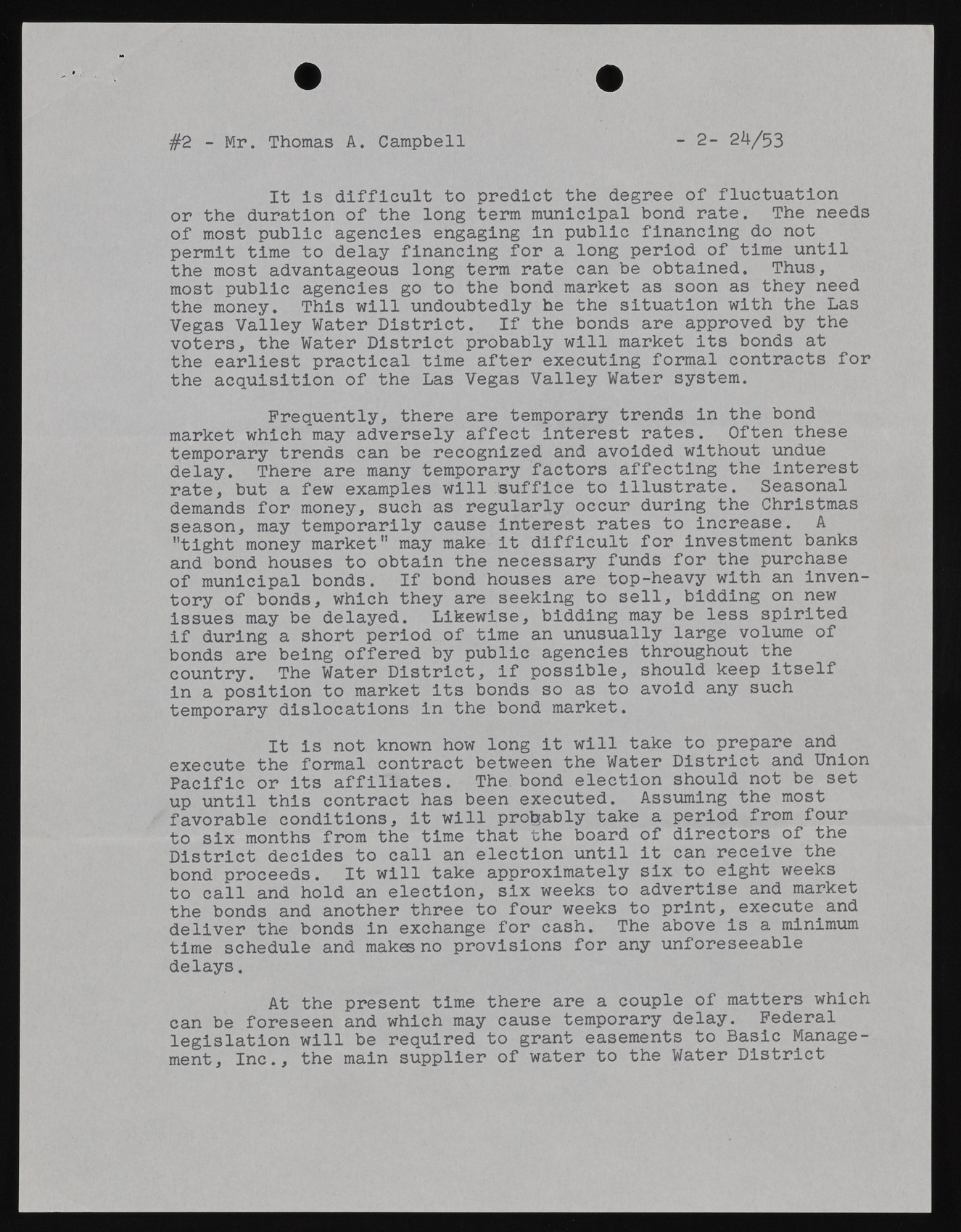Copyright & Fair-use Agreement
UNLV Special Collections provides copies of materials to facilitate private study, scholarship, or research. Material not in the public domain may be used according to fair use of copyrighted materials as defined by copyright law. Please cite us.
Please note that UNLV may not own the copyright to these materials and cannot provide permission to publish or distribute materials when UNLV is not the copyright holder. The user is solely responsible for determining the copyright status of materials and obtaining permission to use material from the copyright holder and for determining whether any permissions relating to any other rights are necessary for the intended use, and for obtaining all required permissions beyond that allowed by fair use.
Read more about our reproduction and use policy.
I agree.Information
Digital ID
Permalink
Details
More Info
Rights
Digital Provenance
Publisher
Transcription
#2 - Mr. Thomas A. Campbell - 2 - 24/53 It is difficult to predict the degree of fluctuation or the duration of the long term municipal bond rate. The needs of most public agencies engaging in public financing do not permit time to delay financing for a long period of time until the most advantageous long term rate can be obtained. Thus, most public agencies go to the bond market as soon as they need the money. This will undoubtedly he the situation with the Las Vegas Valley Water District. If the bonds are approved by the voters, the Water District probably will market its bonds at the earliest practical time after executing formal contracts for the acquisition of the Las Vegas Valley Water system. Frequently, there are temporary trends in the bond market which may adversely affect interest rates. Often these temporary trends can be recognized and avoided without undue delay. There are many temporary factors affecting the interest rate, but a few examples will suffice to illustrate. Seasonal demands for money, such as regularly occur during the Christmas season, may temporarily cause interest rates to increase. A "tight money market" may make it difficult for investment banks and bond houses to obtain the necessary funds for the purchase of municipal bonds. If bond houses are top-heavy with an inventory of bonds, which they are seeking to sell, bidding on new issues may be delayed. Likewise, bidding may be less spirited if during a short period of time an unusually large volume of bonds are being offered by public agencies throughout the country. The Water District, if possible, should keep itself in a position to market its bonds so as to avoid any such temporary dislocations in the bond market. It is not known how long it will take to prepare and execute the formal contract between the Water District and Union Pacific or its affiliates. The bond election should not be set up until this contract has been executed. Assuming the most favorable conditions, it will probably take a period from four to six months from the time that the board of directors of the District decides to call an election until it can receive the bond proceeds. It will take approximately six to eight weeks to call and hold an election, six weeks to advertise and market the bonds and another three to four weeks to print, execute and deliver the bonds in exchange for cash. The above is a minimum time schedule and makes no provisions for any unforeseeable delays. At the present time there are a couple of matters which can be foreseen and which may cause temporary delay. Federal legislation will be required to grant easements to Basic Management, Inc., the main supplier of water to the Water District

